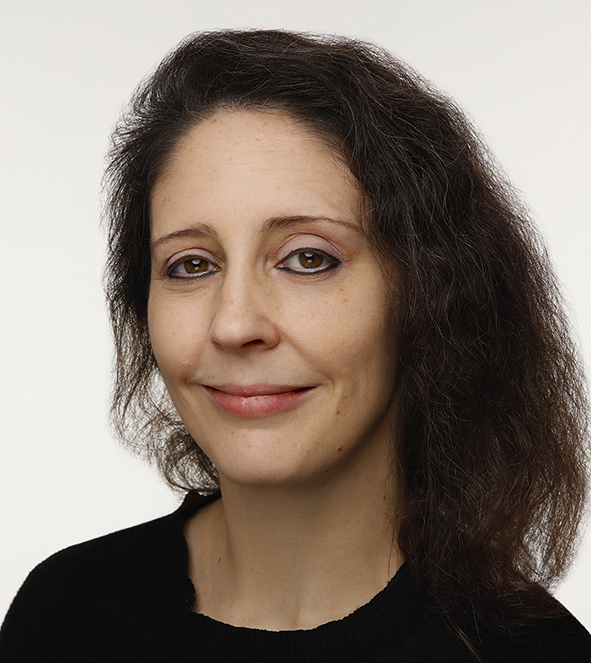The windswept Cornish coast is home to some remarkable coves and beaches – some expansive, sandy and family-friendly, some rugged and rocky with swift tides and crashing waves. Prussia Cove, named after the famous 18th-century smuggler and self-styled ‘King of Prussia’ John Carter, is small and secluded, with rock pools, a cave and granite fishing huts built into the side of the cliffs. There’s also a long, deep gully which forms a miniature natural harbour. For those brave enough to risk the bracing temperatures, this is a great spot for swimming and snorkelling on calmer days.
It’s with this remote slice of seaside heaven that the Hungarian violinist Sándor Végh fell in love when invited to perform in Truro Cathedral by his student Hilary Tunstall-Behrens. ‘Here is the perfect place,’ he wrote. ‘The sky, the sea, always the tide comes and goes… perhaps nature will help [musicians] ease their knotted rhythms, and breathe.’ Thus, the International Musicians Seminar was born in 1972 – three weeks of masterclasses open to international conservatory-level students up to the age of 30, away from the distractions of the world. To this, Open Chamber Music seminars were added in 1975 in which students play alongside established artists, and in 1996 Végh invited cellist Steven Isserlis to become artistic director, a role he has performed with aplomb to the present day.
Of crucial importance to the IMS is its home of Porth-en-Alls House, a neo-Elizabethan building originally designed by architect Philip Tilden in collaboration with Tancred and Brian Tunstall-Behrens (uncle and father to Hilary) as a much larger mansion. Still owned by the Tunstall-Behrens family, the house’s warren of rooms over three floors play host to simultaneous violin, viola, cello, piano and chamber music masterclasses during the day, and to impromptu chamber read-throughs in the evenings, while the grand dining hall, with its high, cathedral-like ceiling, is the perfect venue for communal meals, enabling professors, students and staff to sit side-by-side at long tables.
As the years have gone by, the IMS has forged strong ties with leading composers, including György Kurtág, Brett Dean, Jörg Widmann, Mark-Anthony Turnage and Thomas Adès, the latter of whom was one of eight professors at two sets of ten-day April 2022 sessions. Adès was also midway through composing a special chamber work to be played at IMS Prussia Cove’s 50th birthday concert at London’s Wigmore Hall on 26 November. Always innovative, the seminar had commissioned a new string quartet of instruments to be loaned to its alumni from luthiers Stefan-Peter Greiner and Mark Jennings too – and Jennings could be found in the Garden Room of Porth-en-Alls during April working on the set’s cello.
At the heart of everything, though, were the masterclasses, led in the first ten days by violinist Anthony Marwood, violist Lars Anders Tomter and cellist Steven Doane, alongside Adès – Isserlis would join violinist András Keller, violist Thomas Riebl and pianist Ferenc Rados for the second ten-day slot. Most striking was the sense of encouragement and support – students were urged to listen to their fellows’ lessons and to join in discussions. In the upstairs Long Room, Marwood spoke of the beauty and transparency of a student’s sound in Brahms, but asked her to access darker colours as gulls chimed in from outside a large bay window overlooking the cliffs. ‘They found the words for me,’ he quipped.
Meanwhile, in the Great Room, Doane worked on a student’s own transcriptions of Schubert songs, leading to a discussion on translating German diction into bow strokes: ‘The bows are breaths after all, so be more generous with your bow strokes – the direction of the bow is audible.’ Outside in the Workshop, Adès was wresting with Brahms’s First Piano Concerto: ‘I thought you had the grandeur, but you might also want to capture the joy,’ he said. And when the student asked about voicing in a tricky octave passage, he joked, ‘I’d just worry about the notes at that point!’
From these masterclasses, select students would be hand-picked by their professors to perform in four public concerts in churches around Cornwall – and the professors themselves would give two ‘Maestri’ concerts, attended by the students. Falmouth’s King Charles the Martyr played host to the first of these, featuring Adès in his own Three Mazurkas, Op. 27, and joined by Doane and Tomter for Brahms’s Trio, Op. 114. It was a fitting way to conclude my visit to Prussia Cove – proof, as the applause rang out, that collaboration and respect bring out the very best in musicians young and old.
‘Harbour Under the Cliff’
Porth-en-Alls House
Construction on the main House of the Porth-en-Alls estate began in 1911, but was interrupted by World War I. Work resumed during 1918-20, though the full-scale granite-faced building, with its Rittersaal jutting over the sea-kissed rocks, was never realised – instead, just the west wing stands today.
Architect Philip Tilden brought in a host of joiners, masons and blacksmiths to work on the house, with its carved panelled doors, frames and floors. At his instigation, the entire project was undertaken in a spirit of cooperation, similar to the medieval guild system, whereby the architect ‘must take off his top hat’ and ‘set to work in an apron with the other workmen’.
IMS Prussia Cove celebrates its 50th anniversary with a special weekend of events at London’s Wigmore Hall from 26-27 November 2022, including two world premieres of works by Thomas Adès and György Kurtág.
Further info: International Musicians Seminar: i-m-s.org.uk
Photo: Getty
